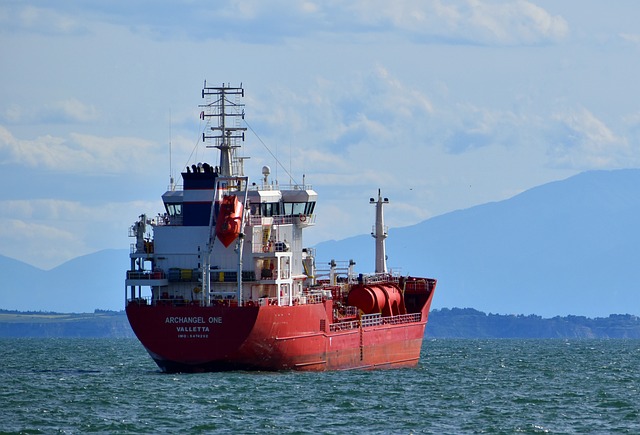In the intricate world of UK customs and trade, accurate documentation is paramount. Understanding the language requirements of customs filings can be challenging, given the legal and technical jargon involved. This article delves into the essentials of reliable translations for UK customs filings, highlighting the crucial role of professional translation services in ensuring compliance. From navigating complex terminology to overcoming common challenges, we provide best practices for accurate and dependable interpretations of vital customs and trade documents.
- Understanding Customs Filings and Their Language Requirements in the UK
- The Role of Professional Translation Services in Ensuring Compliance
- Key Considerations When Choosing a Translation Provider for Customs Documents
- Common Challenges in Translating Customs and Trade Documentation
- Best Practices for Accurate and Reliable UK Customs Filings Translations
Understanding Customs Filings and Their Language Requirements in the UK

Customs filings are an integral part of international trade, facilitating the movement of goods across borders. In the UK, these documents include a range of forms and declarations required by Her Majesty’s Revenue and Customs (HMRC). Each customs and trade document serves a specific purpose, from tracking shipments to determining tariffs and taxes. Understanding their language requirements is crucial for accurate filing and compliance with UK regulations.
The UK translation services for customs filings must meet stringent standards to ensure the integrity of information. These documents often contain technical terminology and legal jargon that require specialized knowledge. Professional translators with expertise in customs and trade terms are essential to provide precise and reliable translations, especially when dealing with complex supply chains and diverse product descriptions. Meeting language requirements ensures smooth operations, minimizes delays at ports, and maintains strong business relationships within the global trading landscape.
The Role of Professional Translation Services in Ensuring Compliance

In today’s globalised market, businesses operating in the UK must ensure their customs and trade documents are accurately translated to comply with regulations. This is where professional translation services play a pivotal role. With expertise in local laws and requirements, these services guarantee that all documentation—from import declarations to export permits—is precise and consistent.
Accurate translations are essential to avoid costly delays at UK borders and potential legal issues. Professional translators possess the linguistic skills and industry knowledge to navigate complex terminology specific to customs and trade, ensuring smooth operations. They also help businesses mitigate risks associated with inaccurate or incomplete translations, thereby facilitating efficient movement of goods across international boundaries.
Key Considerations When Choosing a Translation Provider for Customs Documents

When selecting a translation provider for customs documents, several key considerations come into play. First and foremost, ensure they possess a thorough understanding of both UK and international customs regulations. Accurate translations are paramount in this sector, as incorrect or vague interpretations can lead to significant delays or even legal consequences. Look for providers specializing in customs and trade documents, UK translation services, who have proven expertise and experience handling such sensitive paperwork.
Additionally, check their proficiency in the languages required. With numerous official languages spoken worldwide, it’s essential to choose translators who are native speakers or possess advanced language skills. This guarantees not only grammatical accuracy but also ensures that technical terminology is conveyed precisely, avoiding potential misinterpretations. Reputable translation companies will have a diverse team capable of handling various language pairs and formats typically found in customs filings.
Common Challenges in Translating Customs and Trade Documentation

When it comes to customs and trade documentation, accurate translations are paramount to ensure smooth operations and compliance with UK regulations. However, this task is fraught with several challenges. One of the primary hurdles is the technical jargon inherent in these documents—terms related to tariffs, taxes, and product codes can be complex and unique to specific industries. Misinterpretations can lead to delays at customs or even legal consequences.
Another challenge lies in the rapid evolution of trade agreements and regulatory frameworks. What might be a standard phrase today could become outdated or require a specific interpretation due to changes in legislation. This demands that UK translation services not only have subject matter expertise but also stay abreast of these dynamic changes. Inaccurate or inadequate translations can result in shipments being held, fines incurred, or even market access restrictions for goods entering the UK.
Best Practices for Accurate and Reliable UK Customs Filings Translations

When it comes to UK customs filings, accuracy and reliability are paramount. To ensure seamless clearance, engaging professional customs and trade documents UK translation services is essential. These services should adhere to strict best practices to deliver precise, up-to-date translations that meet the evolving requirements of UK customs authorities.
Firstly, only qualified translators with specialized knowledge in customs terminology and procedures should handle such documents. This expertise ensures a deeper understanding of the nuances within the text, resulting in more accurate translations. Secondly, translation memory tools and comprehensive glossaries should be employed to maintain consistency across different filings. Lastly, thorough quality assurance checks, including proofreading and editing, are crucial to catch any potential errors or ambiguities before submission.
When it comes to customs and trade documents in the UK, accurate translations are non-negotiable. Reliable translation services play a pivotal role in ensuring compliance with language requirements, thereby streamlining the filing process. By carefully considering factors like provider expertise, quality assurance, and industry-specific knowledge, businesses can navigate the complexities of international trade effectively. Investing in professional translation services for customs documents is a strategic move that fosters seamless operations and helps avoid costly delays or errors in the UK’s intricate regulatory environment.



